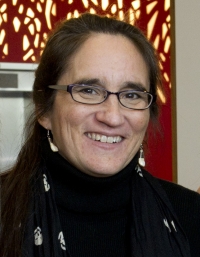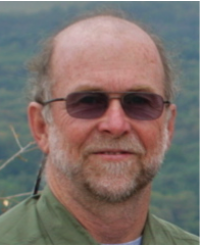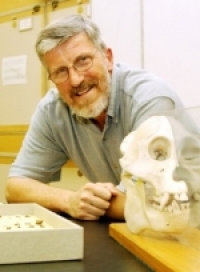The Rise and Fall of Homo erectus
Biographical Sketches: Speakers
New York University
My research considers the evolution of the genus Homo from 2.5 Ma to present. My main areas of interest in early Homo are the relationship between size, scaling, environment and morphology; biological responses to resource variability; and evolution of the human developmental pattern. I am also particularly interested in the relationship between morphological and ecological variables and the early dispersal of genus Homo, as well as the potential ecological impacts of genus Homo on hominin-naïve ecosystems in Asia. These projects include African and Asian hominins and fieldwork in Indonesia.
In recent human evolution, I’ve focused on human influences on island ecosystems and the concomitant influences of resource scarcity on human biocultural systems. I address this work primarily on Mangaia, Cook Islands.
In an effort to to develop integrative approaches to research questions concerning human evolution and to increase our ability to link behavioral, biological, and skeletal data sets, we started the Bones and Behavior Working Group. More details about our group and our integrative measurement protocol for morphological and behavioral research can be found at the group website, http://www.bonesandbehavior.org/.
Collège de France
Professor Jean-Jacques Hublin is Chaire de Paléoanthropologie at the Collège de France and the former Director at the Max Planck Institute of Evolutionary Anthropology in Leipzig (Germany). He has also served as an honorary professor at the University of Leipzig since 2006 and has taught at the University of Leiden (Netherlands) since 2010. Prof. Hublin obtained his PhD in Vertebrate Paleontology and Human Paleontology at the University of Pierre et Marie Curie in Paris (1978), and completed his habilitation in Anthropology at the University of Bordeaux (1991). He first joined the Centre National de la Recherche Scientifique (1981-2000) as a research fellow before continuing as a research director and team leader. Prof. Hublin then joined higher education as a professor at the University of Bordeaux 1 (1999-2004). He has also taught as a visiting professor at the University of California at Berkeley (1992), Harvard University (1997), and Stanford University (1999 and 2011). In 2004, Prof. Hublin joined the Max Planck Institute of Evolutionary Anthropology in Leipzig (Germany) where he created and developed the Department of Human Evolution. He is one of the founders of the European Society for the Study of Human Evolution (ESHE), which connects researchers from European countries. He has had the honor of chairing ESHE since its creation in 2011. Since the 1990s, Prof. Hublin has played a pioneering role in the development of virtual paleoanthropology. In addition to his contributions to the understanding of the African origins of Homo sapiens, he is a well-known specialist on Neandertals. He has played a central role in understanding their origin and evolution and in analyzing the processes of their replacement by Homo sapiens. More recently he has been involved in the study of Denisovans in Russia and China. Finally, Prof. Hublin made a major contribution to the study of the history of paleoanthropology with the publication of a biography of Jacques Boucher de Perthes, French founder of Prehistory. In 1990 Prof. Hublin received the F. Millepierre Prize from the Académie Française; in 2013, the Rudolf-Virchow Prize from the Prinz Maximilian zu Wied Foundation; in 2017, the Royal Wissam al-Kafaa al-Fikria from his Majesty Mohamet VI in person. In 2019, he received the French distinction of Knight of the Legion of Honor.
Stanford University
Richard Klein is Professor of Anthropological Sciences and Biological Sciences, Stanford University. Dr. Klein focuses on the relationship between the evolution of human behavior and the evolution of the human form. He has conducted paleoanthropological research in Europe and Africa since the mid-1960's, and he is currently directing excavations at a 300,000-year-old handaxe site in South Africa. He has summarized his reading of human evolution in The Human Career: Human Biological and Cultural Origins (University of Chicago Press, Second Edition, 1999).
UC San Diego
Jim Moore is an emeritus associate professor of the Department of Anthropology at UC San Diego. His research is on the behavioral ecology of modern primates, with specific interest in the use of insights gained from such work to aid our understanding of Plio-Pleistocene hominins. For most of his career, this work has been carried out on savanna-living chimpanzees at Ugalla in western Tanzania, as a member of the Ugalla Primate Project (now https://www.gmerc.org/). He also has written extensively about the relationship between demography and behavior (specifically, nepotism and dispersal) in primates.
Ugalla is one of the driest and most open sites at which chimpanzees live, and is one of only three active savanna chimpanzee study sites. It has a full complement of predators (lion, leopard, hyena and wild dog) as well as elephant, zebra, roan and at least seven other species of primate. The main study community has over 60 individuals; unfortunately (but interestingly) the prevalence of SIVcpz (the chimpanzee version of HIV) is about 30%. Population density is less than 1/20th of forested sites like Gombe or Kibale.
Understanding how chimpanzee behavior and social structure is influenced by adaptation to savanna life (either directly by the distribution of resources and predators, or indirectly via the effects of population density) can help us understand the scope of chimpanzee biocultural adaptation, as well as help generate, refine, and hopefully test models of early hominin evolution in very similar savanna-woodland environments.
Harvard University
G. Philip Rightmire passed away on April 11, 2025 at the age of 82. A Research Associate in the Department of Human Evolutionary Biology at Harvard University, Rightmire was a biological anthropologist with research interests in skeletal biology, morphometrics, paleoanthropology, and human evolution. He carried out extensive studies of fossil remains from localities in Africa, Europe, and Asia and is particularly concerned with interpreting the Plio-Pleistocene record of genus Homo. His projects centered on Middle Pleistocene hominins, the evolutionary significance of the assemblage from Dmanisi (Georgian Caucasus), the paleobiology of Homo erectus, and the identification of likely antecedents to this species in Africa.
George Washington University
Bernard Wood is The University Professor of Human Origins and Professor of Human Evolutionary Anatomy at George Washington University. Dr. Wood is a medically qualified paleoanthropologist who practiced as a surgeon before moving into full-time academic life in 1972. In 1982, he was appointed to the S.A. Courtauld Chair of Anatomy in The University of London, and in 1985 he moved to The University of Liverpool to the Derby Chair of Anatomy and to the Chairmanship of the Department of Human Anatomy and Cell Biology. He was appointed the Dean of The University of Liverpool Medical School in 1995 and served as Dean until his move to Washington in the fall of 1997. When he was still a medical student, he joined Richard Leakey's first expedition to what was then Lake Rudolf in 1968 and he has remained associated with that research group, and pursued research in paleoanthropology, ever since. His research centers on increasing our understanding of human evolutionary history by developing and improving the ways we analyze the hominin fossil record, and on using the principles of bioinformatics to improve the ways we store and collate data about the hominin fossil record. He has a special interest in the recognition of species and genera in the hominin fossil record, and he collaborates with researchers interested in the evolution of non-hominins in the interests of ensuring that we analyze hominin evolution in a proper comparative context. He has written one of the monographs in the series on the Koobi Fora site, and publishes papers on paleoanthropological topics. He is also the editor of the Wiley-Blackwell Encyclopedia of Human Evolution.







